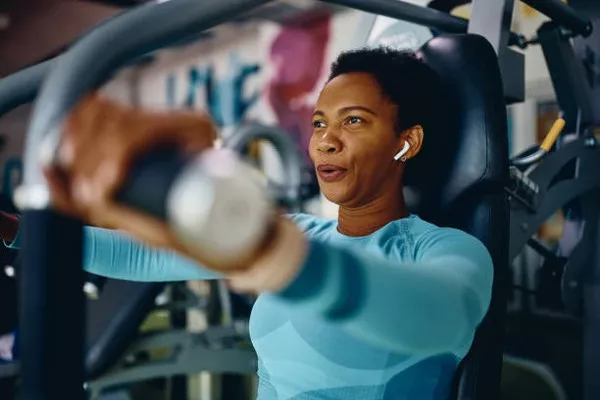When it comes to strength training, the bench press is often hailed as a go-to exercise for building upper body strength. But while it’s well-known for targeting the chest, shoulders, and triceps, many wonder if it also engages the abs. In this article, we will explore the relationship between the bench press and abdominal muscles, uncovering whether this popular lift can effectively work your abs.
What is the Bench Press?
The bench press is a fundamental strength training exercise performed on a bench with a barbell or dumbbells. You lie on your back on the bench, grip the barbell or dumbbells with your hands shoulder-width apart, and lower the weight to your chest before pressing it back up. This movement primarily targets the pectoral muscles (chest), deltoids (shoulders), and triceps (back of the arms).
Primary Muscles Worked
Pectorals
The bench press is renowned for its effectiveness in building the pectoral muscles. These large muscles of the chest are responsible for the movement of the arm across the body and are heavily engaged during the lift.
Deltoids
The deltoids, or shoulder muscles, are also significantly worked during the bench press. They assist in lifting and controlling the barbell throughout the movement.
Triceps
The triceps help extend the elbows and play a crucial role in pushing the barbell up from the chest. They are heavily involved in the bench press, particularly during the lockout phase.
How Does the Bench Press Engage the Core?
While the bench press primarily targets the upper body, the core muscles, including the abs, play a supportive role in the exercise. Here’s how:
Stabilization
When performing a bench press, the core muscles, including the abs, work to stabilize the body on the bench. This is crucial for maintaining proper form and ensuring that the lift is effective. Without core engagement, you might struggle to control the barbell and could risk injury.
Bracing
To lift heavy weights safely, you need to brace your core. Bracing involves tightening the abdominal muscles and engaging the entire core to create a solid base. This bracing action helps transfer force from the lower body to the upper body, allowing for more effective lifting.
Posture Maintenance
Maintaining proper posture during the bench press requires core strength. The abs help keep your back flat on the bench and prevent excessive arching, which can strain the lower back and lead to injury.
Does the Bench Press Build Abs?
While the bench press does engage the abs, it is not specifically designed to build them. The primary focus of the bench press is on the upper body muscles, and while the abs are involved in stabilizing and bracing, they do not receive a targeted workout.
For building abdominal muscles, exercises specifically designed to target the abs are more effective. These include:
Crunches
Crunches involve lying on your back with your knees bent and lifting your shoulders off the ground towards your knees. This isolates the abdominal muscles and effectively targets the abs.
Planks
Planks are an isometric exercise where you hold a push-up position with your body straight and supported on your elbows and toes. This exercise engages the entire core, including the abs, to maintain stability.
Leg Raises
Leg raises involve lying on your back and lifting your legs towards the ceiling while keeping them straight. This exercise targets the lower abs and helps build core strength.
Russian Twists
Russian twists involve sitting on the ground with your knees bent and twisting your torso to each side while holding a weight. This exercise targets the obliques, which are the muscles on the sides of your abdomen.
See Also: How Do I Get Abs At Home
Combining Bench Press with Core Training
If your goal is to enhance overall strength and build a well-rounded physique, combining the bench press with dedicated core exercises is the best approach. Here’s how you can structure your workout:
Integrate Core Exercises
Include core exercises in your workout routine on days when you perform upper body workouts. For example, you could do crunches, planks, and leg raises as part of your warm-up or cooldown routine.
Use Compound Movements
Incorporate compound movements that engage multiple muscle groups, including the core. Exercises like squats and deadlifts not only work the lower body but also require core stabilization, providing additional benefits for your abs.
Maintain Proper Form
Focus on maintaining proper form during the bench press and other exercises to ensure that your core is engaged effectively. This helps in reducing the risk of injury and improving overall workout efficiency.
Conclusion
In summary, while the bench press does engage the abs to some extent, it is not the most effective exercise for specifically targeting and building abdominal muscles. The core plays a supportive role in stabilizing and bracing during the bench press, but for optimal abdominal development, incorporating dedicated core exercises into your routine is essential.
By combining the bench press with targeted core exercises and maintaining proper form, you can achieve a well-rounded strength training program that enhances both your upper body and core strength. So, while the bench press is an excellent exercise for building chest, shoulders, and triceps, don’t forget to give your abs the attention they deserve with dedicated core workouts.
Related Topics:
How Many Days A Week Should I Do Abs


